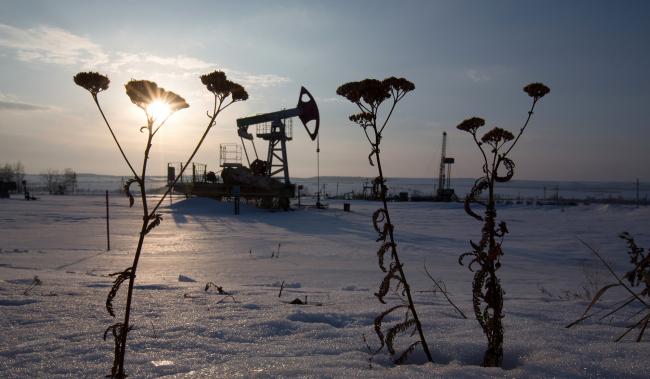(Bloomberg) -- OPEC is sending a clear message to Wall Street banks and big investors: If Washington passes legislation that would allow the U.S. government to sue the cartel, the first victim will be shale.
Suhail Mohammed Al Mazrouei, the United Arab Emirates oil minister and the former president of OPEC, told a group of U.S. financiers Monday that if the so-called NOPEC bill becomes law, the cartel would stop working and therefore every member would raise production to maximum capacity, causing a crash in oil prices, according to people who attended the meeting.
The discussion took place in a closed-door meeting between Organization of Petroleum Exporting Countries officials and the financial community on the sidelines of the annual CERAWeek conference by IHS Markit in Houston, according to the people who asked not to be identified because the talks were private.
President Pleasing
While lower oil prices would be pleasing to consumers -- and to a U.S. president who has called several times for OPEC to keep output levels high -- the warning is an example of how the organization is trying to convince U.S. shale producers and their financial backers that they should join the effort to try to stop the bill. The American Petroleum Institute has stated its opposition to the measure, but OPEC is taking aim at the financial industry that plays a big role providing billions of dollars in debt and equity to U.S. drillers.
OPEC has been publicly vocal about its opposition to the measure, without painting a doomsday scenario as it did privately.
"NOPEC legislation won’t serve the U.S. interest," OPEC Secretary General Mohammad Barkindo said on Tuesday in Houston.
Some oil executives have joined in the fight. The Chief Executive Officer of London-based BP (LON:BP) Plc said today that one of his messages to the Trump administration is to avoid disrupting oil markets too much. He singled out the NOPEC legislation, which “could have severe unintended consequences if it unleashed litigation around the world.”
OPEC ‘Moderates’
If OPEC weren’t around and countries started producing at will, “you’d end up with another price collapse and then you’d see the boom and the bust in the oil fields around the world. I think OPEC, in its own way, moderates the highs and the lows and really has helped the shale industry, in my view.”
The meeting included Michael O’Dwyer, a senior energy banker at Morgan Stanley (NYSE:MS); Bob Maguire, a senior dealmaker at Carlyle International Energy Partners; and Osmar Abib, chairman of global energy at Credit Suisse (SIX:CSGN) Group AG. The meeting also had representatives from pension funds, including the one run by the state of New Jersey, managers such as Fidelity and Guggenheim Partners, and hedge funds including Moore Capital Management LP.
OPEC has used its capacity to send oil prices down in the past -- at times flooding the market as it did in 1985-86, 1998-99 and more recently in 2014-15. Saudi Arabia, which is currently pumping less than 10 million barrels a day, can boost its production to 12.5 million.
While Wall Street has been largely quiet on the NOPEC bill, the U.S. petroleum sector is strongly campaigning against it. The American Petroleum Institute head Mike Sommers wrote in a letter last year to Congress that while "cartels for any commodity are harmful to consumer interests," the current legislation "threatens serious, unintended consequences for the U.S. natural gas and oil industry."
U.S. politicians have tried several times since 2000 to pass the NOPEC bill, but the White House opposed it -- both George W. Bush and Barack Obama threatened to use their veto. The risk for OPEC is that Donald Trump may break with his predecessors.
The U.S. administration so far has given mixed message about its views about the NOPEC bill. Energy Secretary Rick Perry has vocally opposed it, but Trump has remained silent. In an interview with Bloomberg Television on Tuesday, Perry said that OPEC was “appropriately concerned” about the potential legislation.
Before becoming president, Trump didn’t just support the NOPEC bill, he was a cheerleader.
"We can start by suing OPEC for violating antitrust laws," he wrote in his 2011 book "Time to Get Tough: Making America #1 Again" about the problem of high oil prices.
(Updates with comments from BP in 7th paragraph.)
